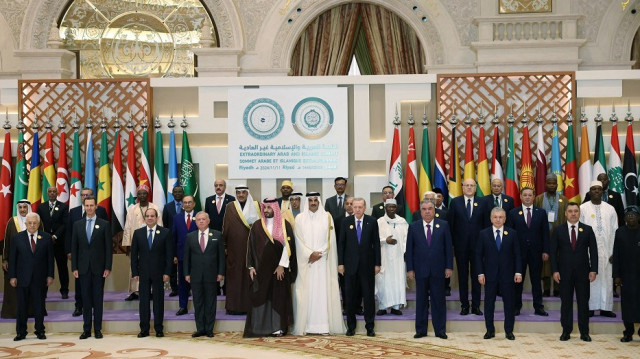

File photo
Riyadh summit voices strong support for Lebanon's stability and sovereignty, condemns Israel's tactics in Gaza, and calls for independent investigation into Israeli war crimes
An Arab-Islamic summit in Saudi Arabia on Monday called on the UN Security Council to issue a binding resolution enforcing an immediate cease-fire in Gaza and facilitating urgent access to humanitarian aid.
The call was part of the final statement of the Arab League-Organization of Islamic Cooperation (OIC) summit held in the Saudi capital Riyadh to address escalating crises in Gaza and Lebanon, both facing a barrage of Israeli attacks.
The summit called for the UN Security Council to enact a “binding resolution for a cease-fire and immediate delivery of humanitarian aid to Gaza.”
The statement also commended “the efforts of Egypt and Qatar, in cooperation with the US, toward reaching a swift and lasting cease-fire in Gaza,” and held Israel accountable for “backtracking on agreements.”
The Riyadh summit also warned against the spread of the aggression that has lasted more than a year on Gaza and has expanded to include Lebanon and the violation of the sovereignty of Iraq, Syria and Iran and could continue “without decisive international measures and international inaction.”
It reaffirmed its commitment to Lebanon's security, stability, and sovereignty, condemning deliberate attacks on the Lebanese army, civilians, and the UN peacekeeping force (UNIFIL) in the country.
The statement stressed the importance of ensuring Lebanon's safety and protecting its citizens amid regional instability.
The summit further condemned Israel's policy of collective punishment in Gaza, specifically its use of blockades and starvation tactics against civilians.
Additionally, the summit denounced the “shocking and horrific crimes” committed by Israeli forces in Gaza and demanded an independent international investigation to hold those responsible accountable.
Regional tensions have escalated due to Israel's brutal offensive on the Gaza Strip, which has killed more than 43,000 people, most of them women and children, following a Hamas attack last year.
As the conflict spread to Lebanon with Israel launching deadly strikes across the country, over 3,200 people have been killed and more than 13,800 others injured in Israeli attacks since last year, according to Lebanese health authorities.
Despite international warnings that the Middle East region is on the brink of a regional war, Tel Aviv on Oct. 1 expanded the conflict by launching a ground assault into southern Lebanon.
#Lebanon
#Arab and Islamic summit
#Gaza
#Israel
